5th Sunday in Lent – Year B – Jn 12: 20-33
Two rather elderly Jesuits were recently having a conversation about dying. One of them asked the other “Are you afraid of dying?” Confident of being able to stare death in the face unflinchingly, his friend replied unhesitatingly “No not at all, I don’t mind death at all – let it come, but what I can’t stand is growing old and weak, losing my eyesight, losing my hearing and my memory. No longer being able to walk properly and go to the bathroom without assistance, not being able to drive myself to where I want to go, that’s what I’m afraid of.” His friend replied to him, “what you have just described, that is death.” For any of us who have accompanied an aging parent or grandparent through the last years of their life, we will know that death can be really messy, and a slow drawn-out process that we would rather avoid.
Loss is a continual fact of life that all of us have to contend with and which we all deal with in more or less satisfactory fashion. Right from our days of going to school, we have had to deal with the loss of friends, who move to another city or country. We have had to deal with the loss of loved ones, the loss of precious property. As we grow older, the losses that we have to deal with become increasingly hard to bear, because the losses become increasingly weighty and have a severe impact on our lives. We have to deal with the loss of our youthfulness, the loss of our trim waistlines, the loss of our health. These losses are not like the losses that we faced in our earlier years where we could console ourselves after the loss of a friend that we would make new friends, or even the loss of a job by telling ourselves that we could always find a new job. These losses of youthfulness, health and loved ones are permanent – we will not get them back. The way human life is set up, with this gradual stripping away of our faculties, as we lose our independence and become more and more dependent on others around us for our every need would seem to indicate that God has designed our lives this way in order that we surrender, we learn to let go and let God. Eventually we will be called to let go of our very lives.
Facing our own mortality and letting go is never easy for anyone. In today’s gospel we see Jesus wrestling with this very same emotion – where he knows that his death is approaching and he is going to have to let go of his life. It is true that Jesus did not have to go through the experience of many elderly people of slowly losing his independence and faculties. But Jesus did have to let go of many things in his life, well before the cross intervened. First of all Jesus had to let go of his desire to get married and have a family. If we are serious about the fact that Jesus was a human being like us in all things but sin, then we must be prepared to acknowledge that Jesus would have felt this very human desire. But for the sake of his mission, he let go of this desire. We might also imagine that Jesus would have desired some measure of stability, like we all do in our lives. It must have been very tiring, journeying from town to town. I’m sure he would have longed to have his own home, with a warm hearth and a hearty warm meal at the end of the day. Instead he would often have had to be content with dry bread for supper and sleeping rough out in the countryside. He had to go of his desire to have a permanent home. Now, in today’s gospel, as it becomes clear to Jesus that life is going to demand one last ultimate letting go from him, he temporarily balks at the prospect: “what shall I say, Father save me from this hour? But it is for this purpose that I came.” What is this purpose? To show us that we have nothing to fear from death – to show us that the cycle of death and new life is really and trustworthy.
For Jesus has studied life and the way of the world and has seen that this cycle of loss and regeneration is built into nature itself. Jesus has reflected on the grain of wheat that falls to the ground and dies and has seen how his Father has ordained that this death should ensure the bearing of an abundance of life. I think often we think of Jesus’ path to the cross as being extraordinary, unrepeatable, and far-removed from the trajectory of our own lives. But really if we think about it, we can realize that Jesus simply walked the same trajectory of loss and stripping away that we each will have to walk. Granted he did not have a long drawn out experience of ageing – but he didn’t really need to – he was a fast learner. Jesus learnt the lessons that come with ageing in a fraction of the time it takes us. We need a long drawn-out ageing process because we are such slow learners. Fundamentally then Jesus’ life was merely a more condensed version of our own. Having quickly cottoned on to the logic of death and resurrection that is baked into nature, Jesus willingly submitted himself to death. Granted it was not easy for Jesus, as the garden of Gethsemane experience clearly demonstrates. John’s gospel does not present us with a Jesus in Gethsemane who sweats blood as he prays for the cup of suffering to pass him by. But today’s gospel is the Johannine equivalent of this synoptic portrayal of Jesus. In both these portrayals, we have Jesus finally submitting that the Father’s will and not his be done. In stark contrast, many of us have to be dragged kicking and screaming into the process of surrender, which is why this stripping away of our faculties happens without our consent and often with considerable frustration and complaining on our part. Today’s gospel invites us to lean into this experience of stripping away as we pray for the blessing of aging gracefully, trusting that our small everyday dyings will bear much fruit.
Questions for reflection
1. How do I respond to my own challenges with my health?
2. When it becomes clear to me that my body will no longer function with the efficiency that it used to, do I welcome the opportunity to depend more on others and on God?
3. What are the recent losses or stripping away that I have experienced which may be invitations to surrender, to letting go and letting God?
By Fr Isaac Fernandes SJ

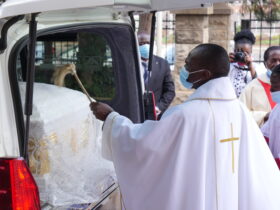
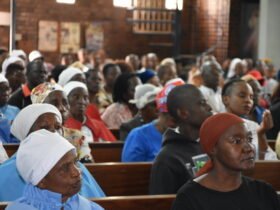

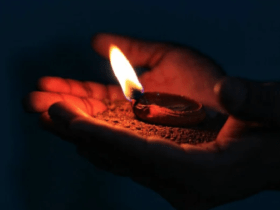

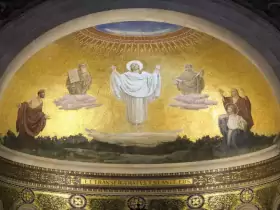

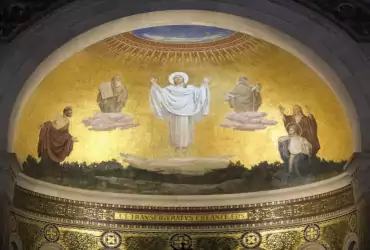
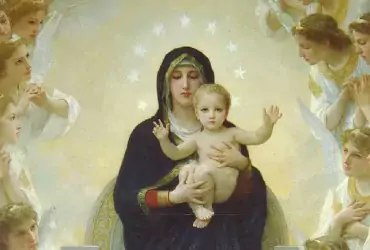
Leave a Reply